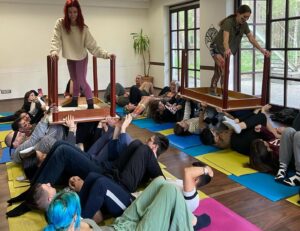
It was ominous, mysterious, unclear. It is somehow about community and community building, but not much more information was shared. Accepting the spot was a leap of faith. That leap took 32 people from 8 different countries to the Kulturhaus in Osterholz-Scharmbeck (Bremen) on the 7th of April 2024. The participants chose their rooms and were treated to dinner on the first night, on Day Zero. What happened next?
European Network
Wild Path was an experiential based learning project focused on the social inclusion of young people, especially those with fewer opportunities, through a variety of activities which aimed to empower the participants by creating a strong sense of community.
Our network is still currently developing and expanding through the different collaborations and cooperation in Erasmus+ projects. All our partners in this constellation brought a lot of experience, expertise and competencies and were of great support throughout all the different project phases.
Wild Path Booklet
Activities
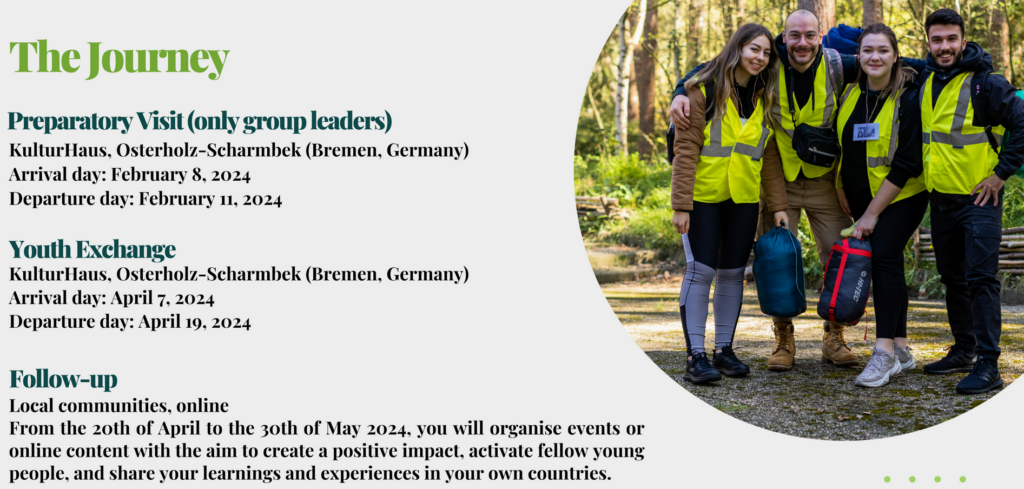
ORGANISATION
Through our past experiences, the feedback gathered from participants and partners, as well as the learning needs expressed by participants in their registration forms, were key to tailoring the activities to cater to the specific needs of our target groups. We also actively engaged Groupleaders (GLs) and participants in co-creating the program through pre-exchange calls and meetings. The GLs and then the participants had the opportunity to share their skills with the rest of the group.
METHODS
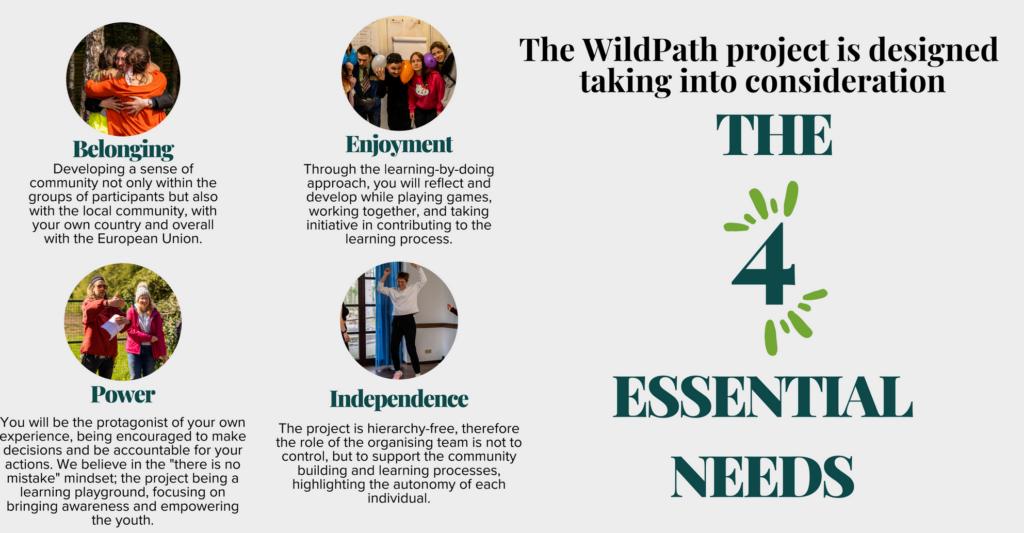
We used a diverse range of non-formal working methods to achieve our objectives:
- – Combining group work (e.g. Adventure stations)
- – Intercultural simulations (Bargna)
- – Bodywork (dancing, embodiment sessions)
- – Theatre methods (Jumanji thematic)
- – Rituals (e.g. the morning and evening circle)
- – Peer learning (e.g. through the reflection groups, common group tasks)
- – Discussions (in small and big groups)
- – Interactive presentations (e.g. YouthPass presentation and introduction)
- – Games (Adventure Stations / Cooperation Stations)
- – Simulations (e.g. the whole outdoor experience)
- – Learning by doing (e.g. the outdoor experience, cleaning and preparing food)
- – Brainstorming (e.g. in finding solutions for upcoming situations)
One crucial method applied was the method of immersion, in which the participants were able to apply their learnings in a “real-world” scenario during the “outdoor challenge”, outside the venue.
THEME
The theme of “Jumanji” was selected as the underlying backbone for the daily activities. The theme supported the participants in understanding the different stages of the exchange including the Jumanji Game (Outdoor) where the participants entered uncharted territory, confronting the ultimate challenge, returning home, and collecting the rewards symbolised by the insights gained by our participants in this particular context.
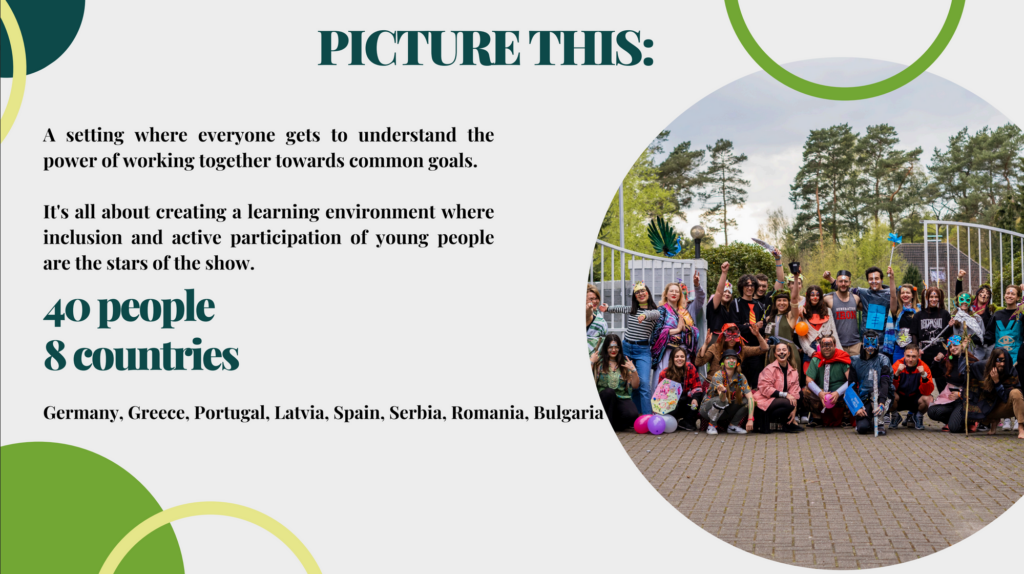
The activities were designed in a way to allow the participants to experience a sense of community throughout the whole duration of the exchange. They took ownership in the well being of all members of the community taking care that our 4 essential needs were met – Belonging, Independence, Power and Enjoyment.
Outcomes
Our Participants form all countries together wrote their experiences in the following document, first in english and than in their language:
- Spain (1
- Bulgaria (3)
- Serbian (7)
- Romania (10)
- Portugal (14)
- Greek (16)
- German (18)
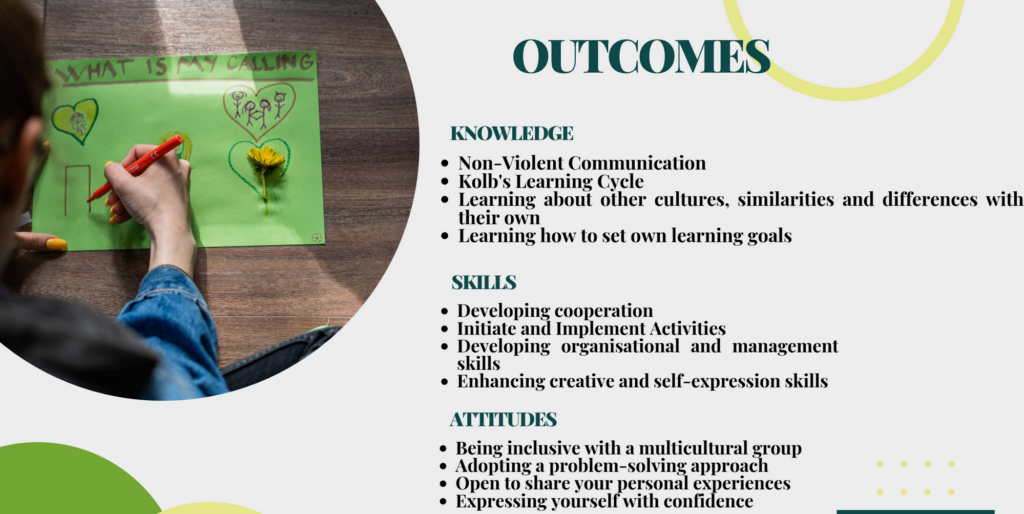
Team
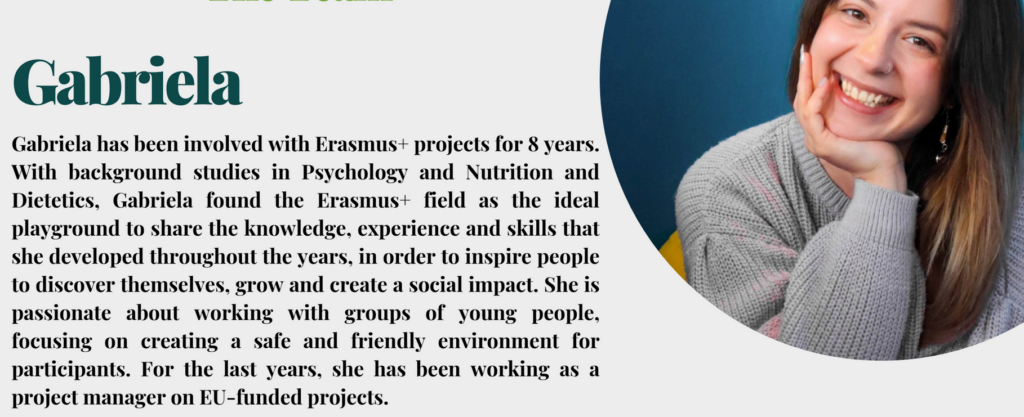
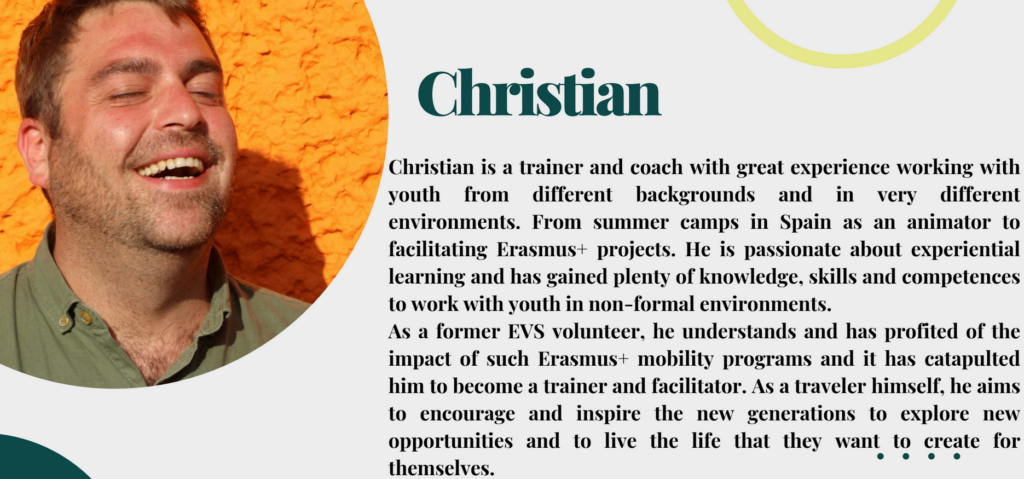
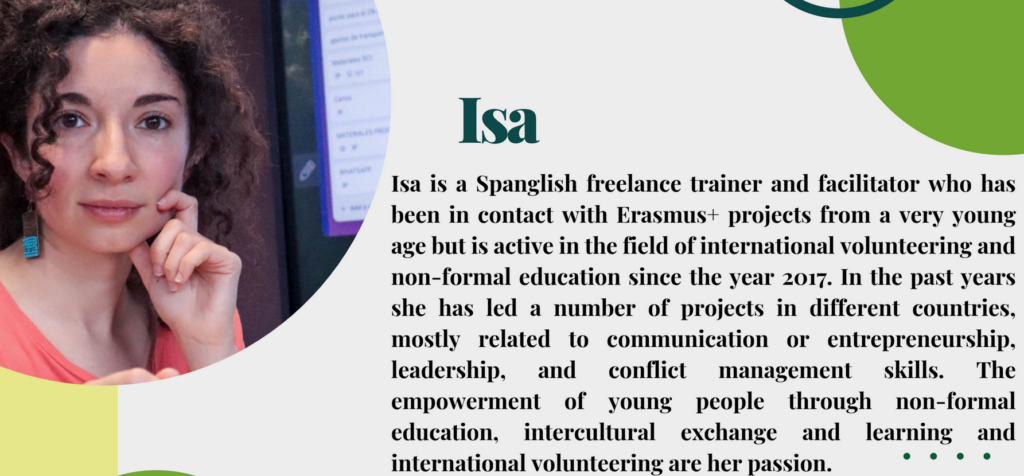
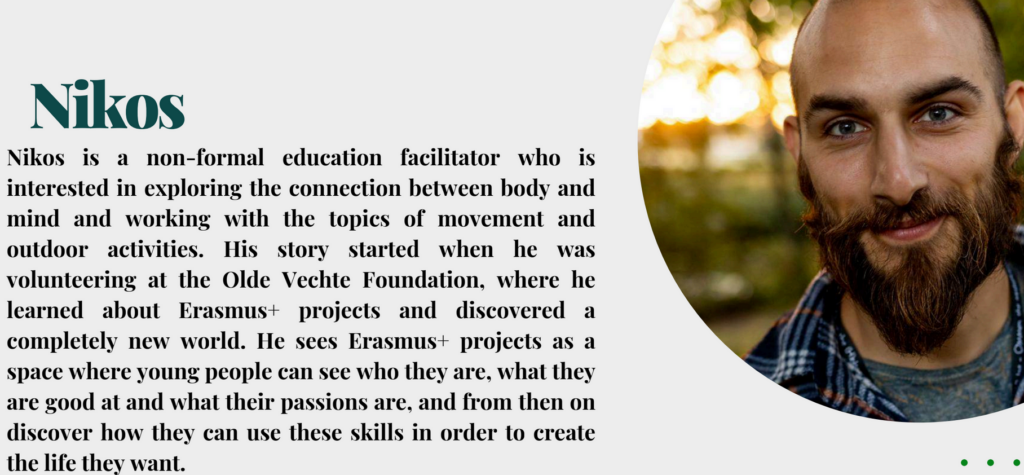
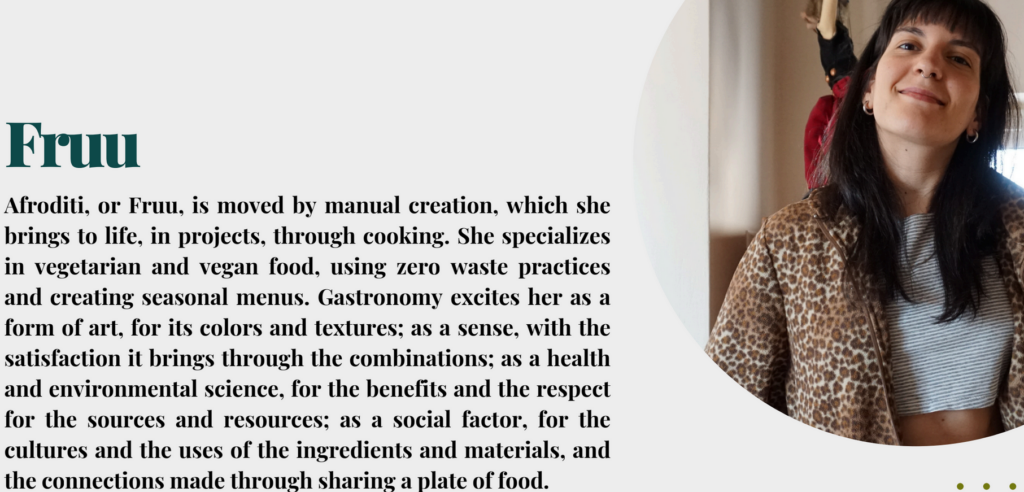
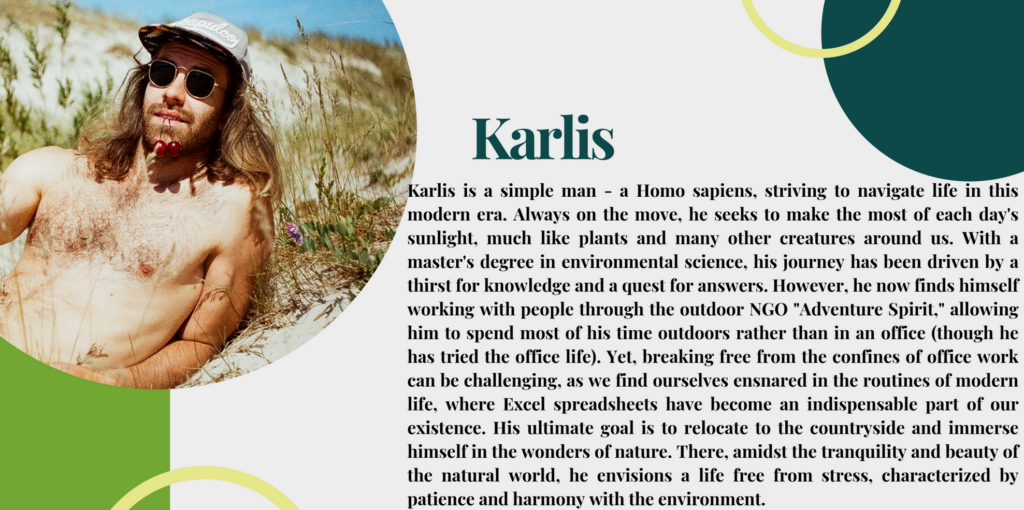
Funded by the European Union. Views and opinions expressed are however those of the author(s) only and do not necessarily reflect those of the European Union or the European Education and Culture Executive Agency (EACEA). Neither the European Union nor EACEA can be held responsible for them.
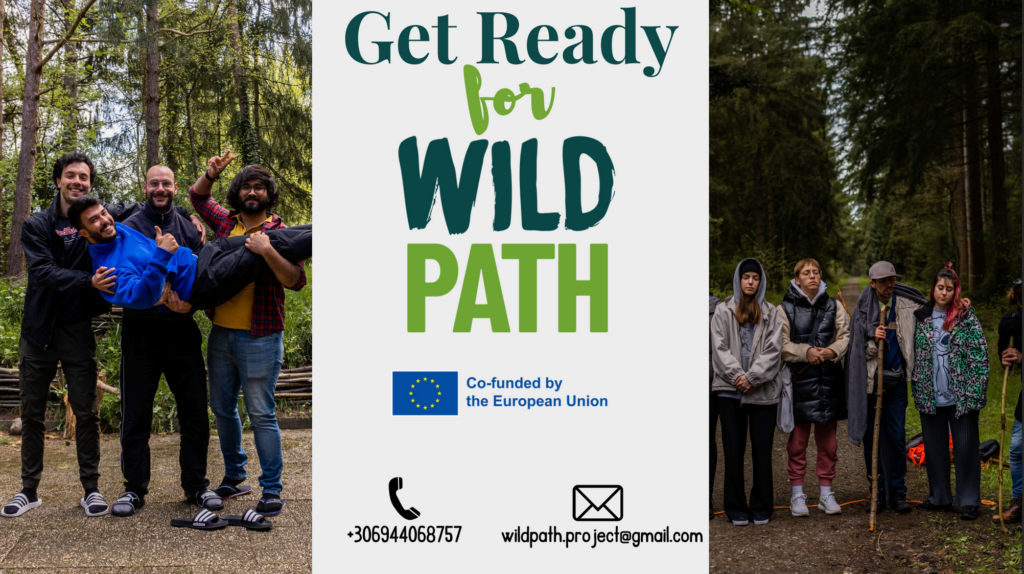
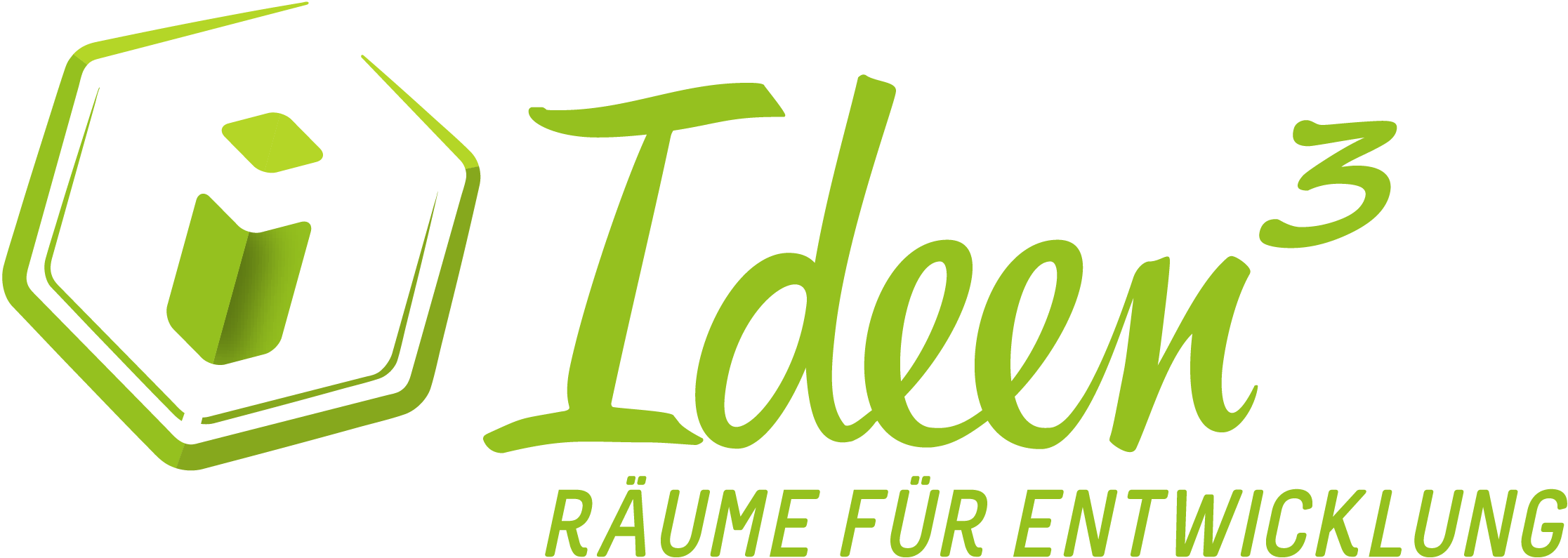

1 thought on “Wild Path – little bumps or scrapes along the way”